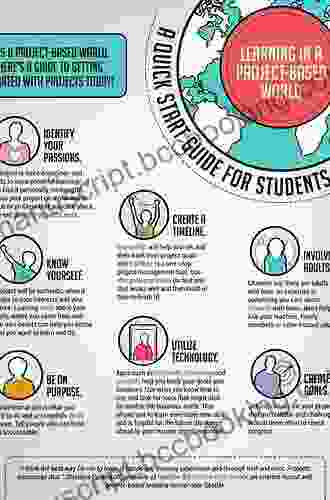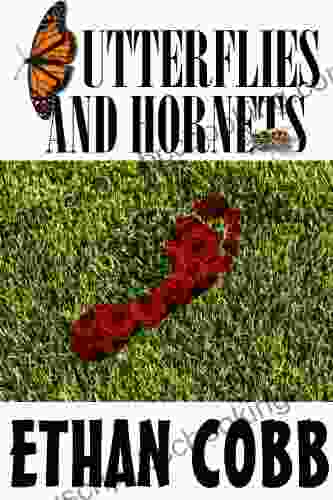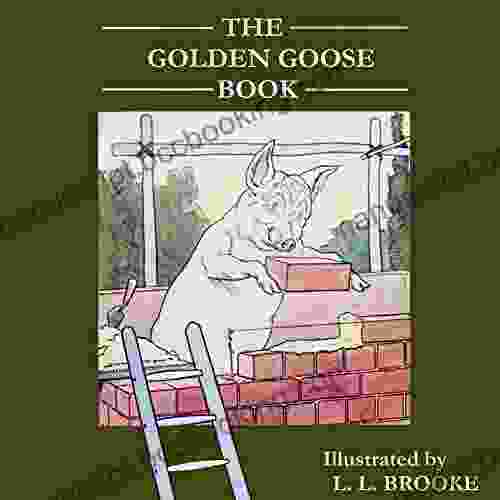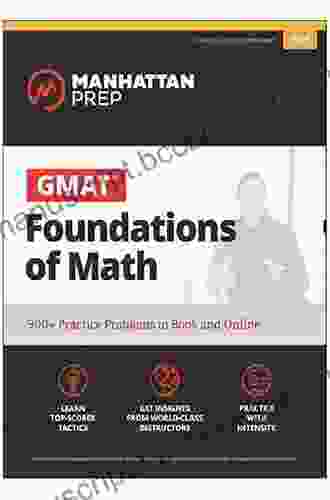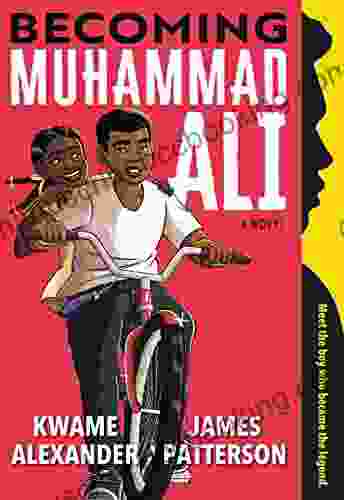Writing at University: A Comprehensive Guide for Students

Are you a student struggling with your academic writing? Do you feel like you're not meeting the expectations of your professors? If so, then this guide is for you.
4.2 out of 5
| Language | : | English |
| File size | : | 4058 KB |
| Screen Reader | : | Supported |
| Print length | : | 232 pages |
This comprehensive guide provides students with everything they need to know about academic writing at university. From understanding the different types of assignments to developing effective writing strategies, this guide has it all.
Chapter 1: Understanding the Different Types of Assignments
The first step to successful academic writing is understanding the different types of assignments you'll be expected to complete. Each type of assignment has its own unique purpose and requirements, so it's important to be familiar with them all.
Some of the most common types of assignments include:
- Essays: Essays are long-form pieces of writing that explore a particular topic in depth. They typically require you to conduct research, develop a thesis statement, and support your argument with evidence.
- Research papers: Research papers are similar to essays, but they require you to conduct more in-depth research and present your findings in a formal, academic style.
- Book reviews: Book reviews are critical evaluations of a particular book. They typically discuss the book's strengths and weaknesses, and offer an overall assessment of its value.
- Case studies: Case studies are in-depth analyses of a particular case or situation. They typically involve collecting data, analyzing the data, and drawing s.
- Presentations: Presentations are oral presentations that you give to your classmates or professor. They typically involve presenting your research findings or discussing a particular topic.
Chapter 2: Developing Effective Writing Strategies
Once you understand the different types of assignments you'll be expected to complete, you can start developing effective writing strategies. There are many different ways to approach writing, but some general tips include:
- Start early: Don't wait until the last minute to start writing. Give yourself plenty of time to research your topic, develop your ideas, and write and revise your paper.
- Plan your writing: Before you start writing, take some time to plan out your paper. This will help you stay organized and ensure that your paper flows well.
- Write in a clear and concise style: Your writing should be easy to read and understand. Avoid using jargon and technical terms that your audience may not be familiar with.
- Support your arguments with evidence: When you make a claim, be sure to support it with evidence from your research. This could include citing scholarly sources, providing data, or offering examples.
- Revise and edit your work: Once you've finished writing a draft of your paper, take some time to revise and edit it. This will help you catch any errors and make sure that your paper is polished and professional.
Chapter 3: Writing in Different Disciplines
The strategies you use for academic writing will vary depending on your discipline. For example, the writing style used in the humanities is different from the writing style used in the sciences.
In the humanities, writing is typically more subjective and interpretive. Humanities scholars often use personal anecdotes and examples to support their arguments. In the sciences, writing is typically more objective and fact-based. Science writers use data and evidence to support their claims.
It's important to be aware of the different writing conventions used in your discipline. This will help you write papers that are appropriate for your audience.
Chapter 4: Avoiding Plagiarism
Plagiarism is the act of using someone else's work without giving them credit. This is a serious academic offense, and it can result in failing grades or even expulsion from university.
There are many different ways to avoid plagiarism. Some tips include:
- Always cite your sources: Whenever you use information from another source, be sure to cite it properly. This means giving the author's name, the title of the work, the publication date, and the page number.
- Don't copy and paste: It's tempting to copy and paste text from other sources, but this is a form of plagiarism. Instead, paraphrase or summarize the information in your own words.
- Get help if you need it: If you're struggling to avoid plagiarism, don't hesitate to get help from your professor, a librarian, or a writing tutor.
Chapter 5: Succeeding in Your Writing Courses
Succeeding in your writing courses is essential for academic success. By following the tips in this guide, you can improve your writing skills and get the grades you want.
Here are some additional tips for succeeding in your writing courses:
- Attend class regularly: Attending class is one of the best ways to improve your writing skills. In class, you'll learn about the different types of writing assignments, the writing process, and the writing conventions used in your discipline.
- participate in class discussions: Participating in class discussions is a great way to practice your writing skills. When you discuss your ideas with other students, you'll get feedback that can help you improve your writing.
- Meet with your professor during office hours: Office hours are a great opportunity to get one-on-one feedback from your professor. You can ask your professor questions about your assignments, discuss your writing, and get help with any writing problems you're experiencing.
- Use writing resources on campus: Many universities offer writing resources such as writing centers and writing tutors. These resources can provide you with additional support and guidance with your writing.
Writing at university can be challenging, but it's also an essential skill for academic success. By following the tips in this guide, you can improve your writing skills and get the grades you want.
4.2 out of 5
| Language | : | English |
| File size | : | 4058 KB |
| Screen Reader | : | Supported |
| Print length | : | 232 pages |
Do you want to contribute by writing guest posts on this blog?
Please contact us and send us a resume of previous articles that you have written.
 Book
Book Novel
Novel Page
Page Chapter
Chapter Text
Text Story
Story Genre
Genre Reader
Reader Library
Library Paperback
Paperback E-book
E-book Magazine
Magazine Newspaper
Newspaper Paragraph
Paragraph Sentence
Sentence Bookmark
Bookmark Shelf
Shelf Glossary
Glossary Bibliography
Bibliography Foreword
Foreword Preface
Preface Synopsis
Synopsis Annotation
Annotation Footnote
Footnote Manuscript
Manuscript Scroll
Scroll Codex
Codex Tome
Tome Bestseller
Bestseller Classics
Classics Library card
Library card Narrative
Narrative Biography
Biography Autobiography
Autobiography Memoir
Memoir Reference
Reference Encyclopedia
Encyclopedia Lucia Peters
Lucia Peters Fern Schumer Chapman
Fern Schumer Chapman Flo Groberg
Flo Groberg R K Gupta
R K Gupta Francesco Sedita
Francesco Sedita F Sehnaz Bac
F Sehnaz Bac Molly Bradley Hudgens
Molly Bradley Hudgens Fenella J Miller
Fenella J Miller Esther Rutter
Esther Rutter Eugenia G Kelman
Eugenia G Kelman James Wallace
James Wallace Phoebe Lapine
Phoebe Lapine Hadley Higginson
Hadley Higginson Ricki Linksman
Ricki Linksman Fiona Ferris
Fiona Ferris Wes Bush
Wes Bush Steve Berry
Steve Berry Ingo Berensmeyer
Ingo Berensmeyer Libby O Connell
Libby O Connell Supana Onikage
Supana Onikage
Light bulbAdvertise smarter! Our strategic ad space ensures maximum exposure. Reserve your spot today!

 Ernest HemingwayUnlock the Healing Power of Hormones with The Ultimate Healing Hormone Reset...
Ernest HemingwayUnlock the Healing Power of Hormones with The Ultimate Healing Hormone Reset... Davion PowellFollow ·6.9k
Davion PowellFollow ·6.9k Ralph EllisonFollow ·7k
Ralph EllisonFollow ·7k Dave SimmonsFollow ·7.8k
Dave SimmonsFollow ·7.8k Greg FosterFollow ·4.3k
Greg FosterFollow ·4.3k Steve CarterFollow ·9.8k
Steve CarterFollow ·9.8k Dion ReedFollow ·5.3k
Dion ReedFollow ·5.3k Todd TurnerFollow ·11.5k
Todd TurnerFollow ·11.5k Asher BellFollow ·6.9k
Asher BellFollow ·6.9k
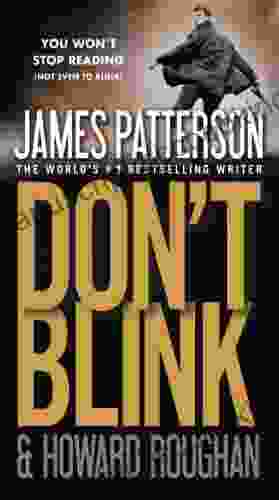
 W.H. Auden
W.H. AudenStep into a World of Thrilling Deception: Don Blink by...
Unveiling the Masterpiece of Suspense:...
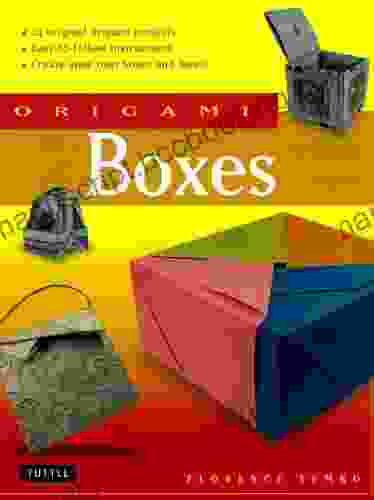
 Jaylen Mitchell
Jaylen MitchellUnleash Your Creativity with "This Easy Origami": A...
: Embark on an Enchanting Voyage into the...
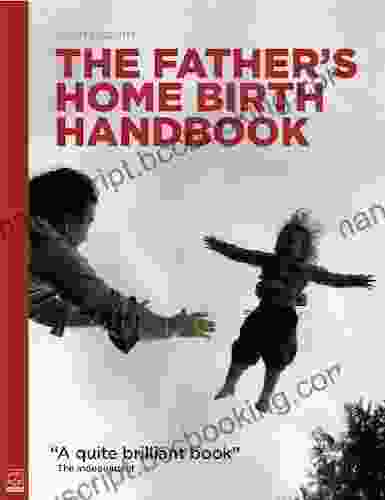
 Vladimir Nabokov
Vladimir NabokovEmpowering Home Births: A Comprehensive Guide for Fathers...
An In-Depth Exploration of Paternal...

 Juan Rulfo
Juan RulfoThe Maya Exodus: Indigenous Struggle for Citizenship in...
The Maya Exodus: Indigenous Struggle for...
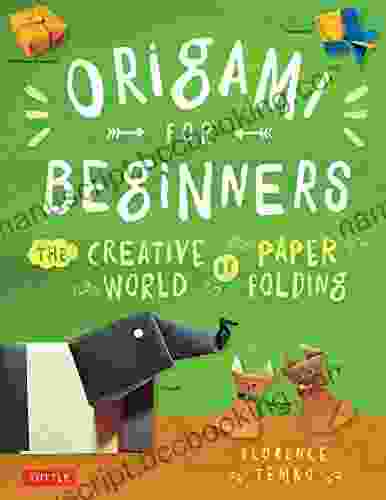
 Julio Ramón Ribeyro
Julio Ramón RibeyroKana Made Easy: Dive into Japanese the Fun and Effortless...
Unveiling the Secrets...
4.2 out of 5
| Language | : | English |
| File size | : | 4058 KB |
| Screen Reader | : | Supported |
| Print length | : | 232 pages |


